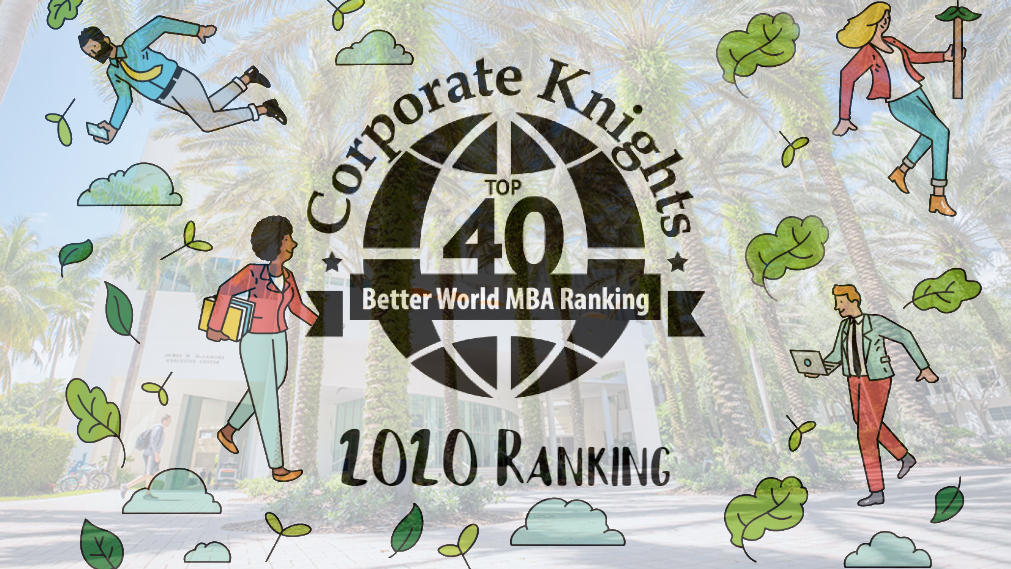The Better World MBA Ranking is recognized as the only major ranking that evaluates accredited MBA programs’ commitment to equipping graduates with the skills necessary to solve pressing business and social challenges in order to succeed in a rapidly evolving global business climate. The ranking evaluates curriculum, research, and centers related to sustainability, as well as faculty diversity, across the top 150 schools on the Financial Times’ Global MBA Ranking.
"This recognition endorses the quality of our STEM certified Sustainable Business degree program, and the faculty, staff and students who make it happen,” said John Quelch, dean of Miami Herbert. “The program is only in its second year, but already enables us to rank among top business schools."
David Kelly, a professor of economics and the academic director of the program, said Miami Herbert established the program to fulfill an emerging need for professionals who understand the social and environmental impact businesses have on stakeholders.
"The program teaches students to make the business case for sustainability; showing that firms can benefit financially by doing good socially and for the environment," Kelly said.
In 2011, only about 20 percent of S&P 500 companies were reporting on their sustainability efforts. By 2019, 85 percent of companies were filing such reports. These reports cover not only a company’s carbon emissions output and environmental impacts, but social impacts as well.
The M.S. program has an innovative experiential learning capstone course where students are embedded within a company for nine months working on a consulting project. This past spring, Office Depot hosted the capstone project.
"Through our experiential curriculum, students help real companies integrate sustainability into operations, supply chains, customer solutions, and other aspects of the business, making a positive impact, while boosting financial performance," Kelly said.
What makes the program unlike others is its focus on science. In addition to the Business School’s resources, the school is able to rely on the University of Miami Rosenstiel School of Marine and Atmospheric Science (RSMAS). The program combines science and business making it much more than a traditional business curriculum on sustainability.
The program is part of a school-wide focus on sustainability, which includes a Sustainable Business Research Cluster, presentations by thought leaders in business sustainability, LEEDs certification of the school building, a Chief Sustainability Officer Summit, and membership in the UN Sustainability Solutions Network.
To determine the ranking, Corporate Knights evaluated 150 business schools. Programs were evaluated across five key performance indicators: the number of sustainability-focused articles in peer-reviewed journals and citations (30% and 20% respectively), the number of core courses that incorporate sustainable development topics (30%), research institutes and centers devoted to sustainable development issues (10%) and faculty gender and racial diversity in the business school (5% each).
Founded in 2002, Corporate Knights Inc. includes the sustainable business magazine Corporate Knights and a research division that produces rankings and financial product ratings based on corporate sustainability performance, including the Global 100 Most Sustainable Corporations in the World.
For a full list of rankings, visit Corporate Knights Inc.'s website.

